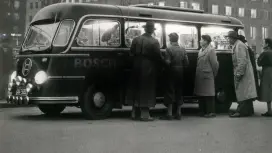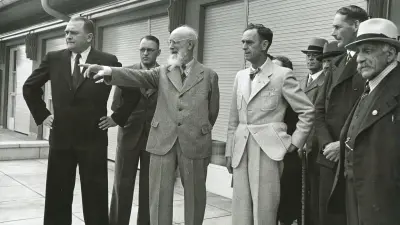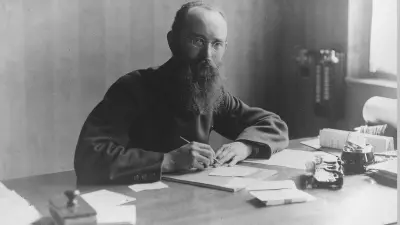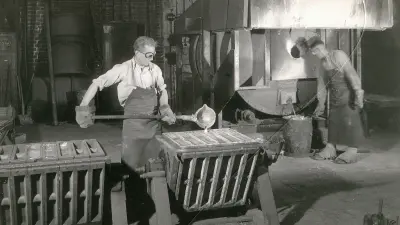Pulling together
Friendship in times of crisis
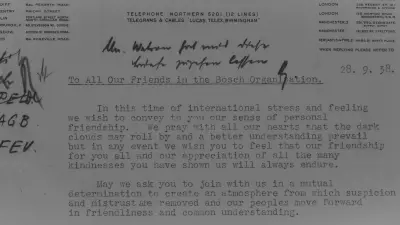
In fall 1938 Europe was on the brink of war. Nazi Germany’s aggressive foreign policy had set its sights on Czechoslovakia.
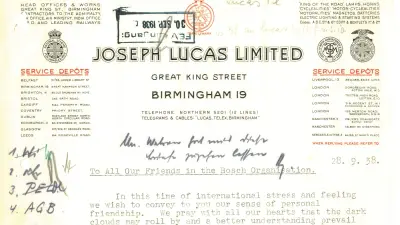
Aside from annexing those regions inhabited by Sudeten Germans into the German Reich, the aim was ultimately to break up Czechoslovakia as a country. The Munich Conference was hastily convened in late September and attended by Chamberlain and Daladier — the prime ministers of the United Kingdom and France — as well as the dictators Hitler and Mussolini. The summit only resulted in a temporary solution. Nazi Germany was permitted to occupy the Sudetenland, but the rest of Czechoslovakia was supposed to be left untouched. It was a nerve-racking time vacillating between hope and worry. There was widespread fear of a new war, as the memory of the previous one was still quite vivid in many people’s minds.
In this climate, staff at the English company Joseph Lucas Ltd. in Birmingham Lucas sent a remarkable letter to Bosch in Stuttgart. Since 1931, both companies had been collaborating in London as part of the joint venture C.A.V.-Bosch. Their relationship was one of mutual respect. Many of the associates knew each other personally from visits to Birmingham and Stuttgart. The letter addressed “to all of our friends in the Bosch organization” was a message: “We wish you to feel that our friendship for you all and our appreciation of all the many kindnesses you have shown us will always endure. May we ask you to join with us a mutual determination to create an atmosphere from which suspicion and mistrust are removed and our peoples move forward in friendliness and common understanding.” The response from Stuttgart was swift: “We at Bosch, who have long been fortunate to be associated with many of you in the context of our inspiring and successful collaboration, appreciate your message of friendship in these difficult times. [...] May the benign spirit of this promising affirmation of peace and understanding continue to guide our joint efforts in the future.”
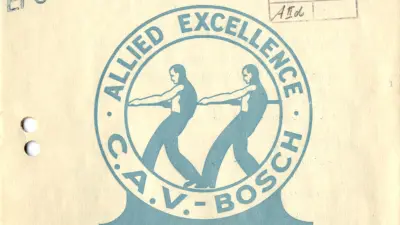
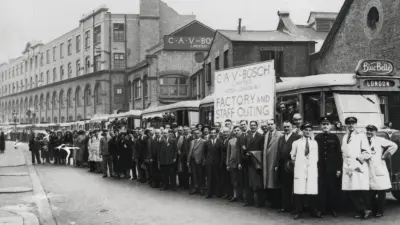
There was a lot at stake. Not only had associates established friendly ties, but the companies had also shared a great deal of technological expertise. Both of them had disclosed their patents, and some Bosch products under license were being manufactured in England. The notion that these products might be used against each other in the event of war — for example in military vehicles — was alarming. War, of course, was unavoidable, but when Bosch re-established a presence in the U.K. in the 1950s, it did so with the help of its old friends at Lucas.
Author: Christine Siegel
